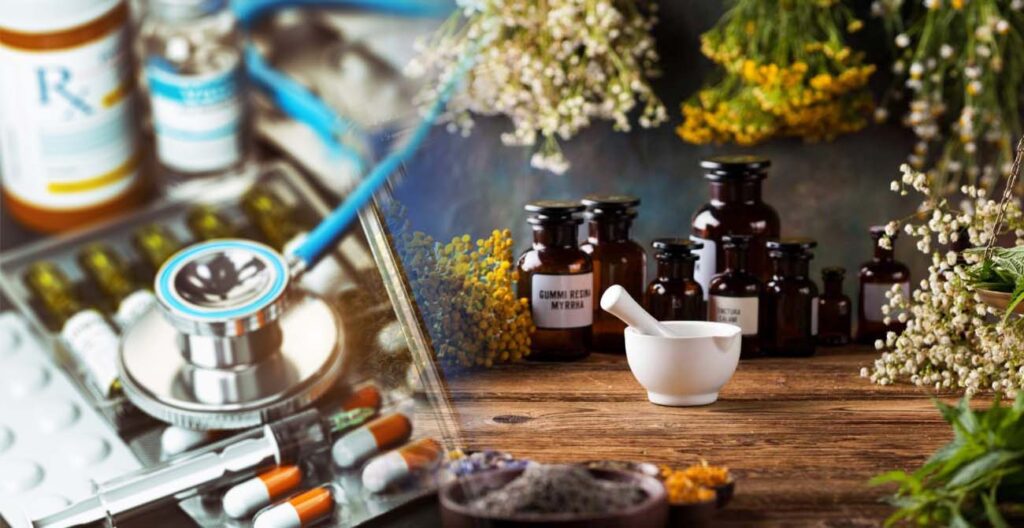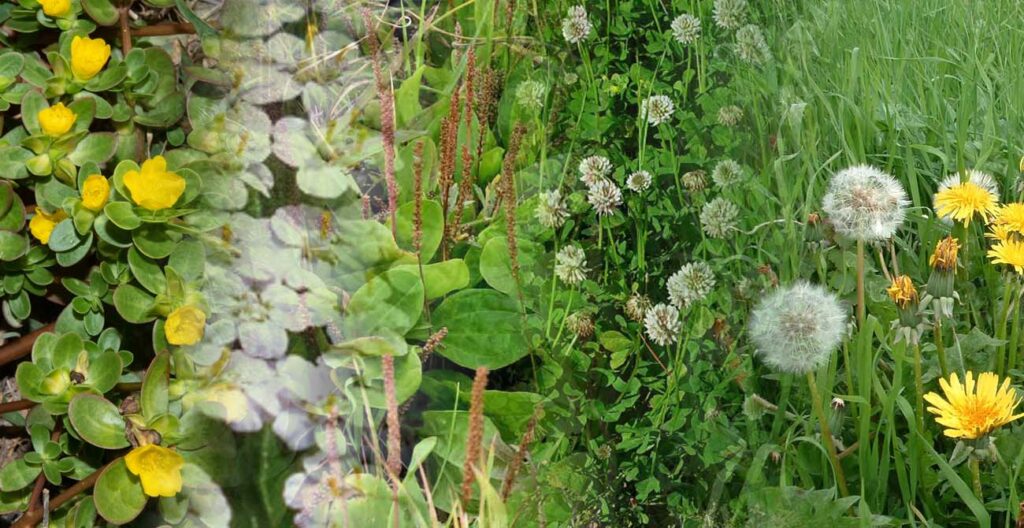
Homeopathy, a holistic system of medicine, harnesses the healing power of plants to stimulate the body’s own healing mechanisms. But did you know that many of the common “weeds” we often drench with glyphosate-based chemicals contain beneficial, healing properties? If not, read on.
Dandelion (Taraxacum officinale)
Often seen as a pesky weed, dandelion has remarkable medicinal properties. It is an excellent remedy for liver and digestive issues. Dandelion root tincture can aid in detoxification and support healthy liver function. It also acts as a diuretic, helping to flush out excess water and toxins from the body. Dandelion leaves can be used to alleviate symptoms of bloating and indigestion. However, individuals with gallbladder problems should exercise caution when using dandelion.
Preparation: To prepare a homeopathic remedy from dandelion, collect the fresh roots or leaves, chop them, and steep in alcohol or water to create a tincture.
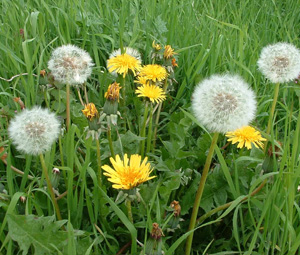
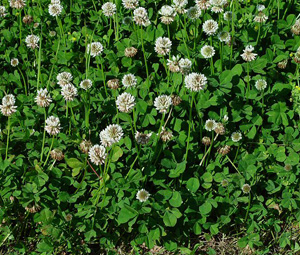
Clover (Trifolium spp.)
Clover, with its distinctive three-leaf structure, has been used in traditional medicine for centuries. It possesses anti-inflammatory and antioxidant properties. Clover tea or tincture can be beneficial for respiratory conditions such as coughs, bronchitis, and asthma. It also aids in improving blood circulation and can be used as a topical application to relieve skin irritations. However, pregnant women and individuals on blood-thinning medications should avoid excessive use of clover.
Preparation: To make a homeopathic remedy from clover, collect the flowering tops of the plant, dry them, and steep in water or alcohol to create a tincture or tea.
Plantain (Plantago major
Plantain is a versatile weed that offers a range of health benefits. Its leaves contain natural antibacterial and anti-inflammatory properties. Plantain can be used topically to soothe insect bites, stings, and skin irritations like eczema. It also acts as a natural expectorant, making it valuable for respiratory conditions such as coughs and colds. However, individuals with plant allergies should use caution when using plantain.
Preparation: To create a homeopathic remedy from plantain, collect fresh leaves, chop them, and steep in water or alcohol to make a tincture or compress.
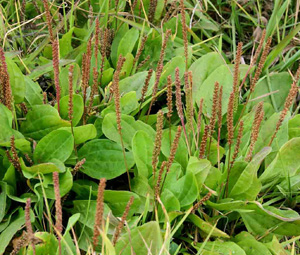
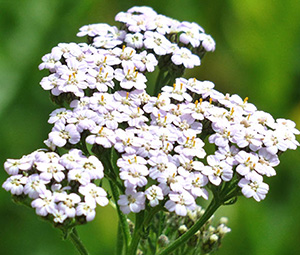
Yarrow (Achillea millefolium)
Yarrow, with its feathery leaves and clusters of white or pink flowers, possesses remarkable healing properties. It has been used traditionally to stop bleeding and promote wound healing. Yarrow is also known for its antispasmodic and anti-inflammatory properties, making it useful for digestive complaints, menstrual cramps, and urinary tract infections. However, individuals with allergies to plants in the Asteraceae family should avoid yarrow.
Preparation: To prepare a homeopathic remedy from yarrow, gather the flowering tops, dry them, and steep in water or alcohol to create a tincture or tea.
Purslane (Portulaca oleracea)
Purslane, a succulent weed with fleshy leaves, is a nutritional powerhouse rich in omega-3 fatty acids and antioxidants. It has a cooling and soothing effect on the body and can be used to alleviate digestive issues such as acidity and heartburn. Purslane also exhibits anti-inflammatory properties, making it helpful for joint pain and arthritis. Pregnant women should avoid consuming purslane due to its potential to stimulate uterine contractions.
Preparation: To make a homeopathic remedy from purslane, collect the fresh leaves, chop them, and steep in water or alcohol to create a tincture or tea.
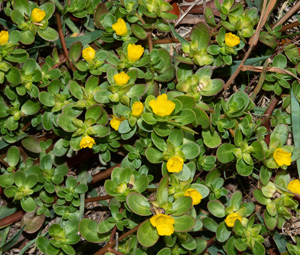
Nature has bestowed us with an abundance of healing plants, even in our own backyards. These five common North American yard weeds can be transformed into powerful homeopathic remedies, offering natural and gentle solutions for various ailments. As with any form of medicine, it is essential to exercise caution, understand individual sensitivities, and consult a healthcare professional when needed. Embrace the power of nature and explore the world of homeopathy for a more holistic approach to healing.


